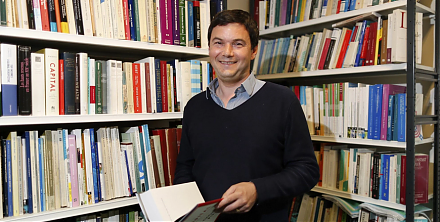

2019-08-30 11:35:00 Fri ET
trust perseverance resilience empathy compassion passion purpose vision mission life metaphors seamless integration critical success factors personal finance entrepreneur inspiration grit
The conventional wisdom suggests that chameleons change their skin coloration to camouflage their presence for survival through Darwinian biological evolution. This naive intuition seems so natural and nomological that most people assume so on the basis of common sense. However, scientific research demonstrates that chameleons run much faster than their predators. This fresh insight causes many scientists to view camouflage as part of the story for this functional skin coloration. More recent research suggests that chameleons typically vary their skin coloration to express key social signals in response to other chameleons, external conditions, and physiological changes. For instance, bright skin color signals an aggressive emotion while dark skin color reflects a submissive reaction.
Overall, scientific research trumps basic intuition and common sense. The same idea applies to the economic science of dynamic asset management too. We often need to learn from fundamental factors in order to decipher economic insights into how macroeconomic fluctuations manifest in the cross-section of average asset returns. These fundamental factors include the return spreads between the top-to-bottom 30% of stocks for size, value, momentum, asset growth, cash profitability, and market risk exposure. Our proprietary alpha investment algorithm serves this fundamental purpose.
If any of our AYA Analytica financial health memos (FHM), blog posts, ebooks, newsletters, and notifications etc, or any other form of online content curation, involves potential copyright concerns, please feel free to contact us at service@ayafintech.network so that we can remove relevant content in response to any such request within a reasonable time frame.
2018-12-21 11:39:00 Friday ET

The Internet and telecom conglomerate SoftBank Group raises $23 billion in the biggest IPO in Japan. Going public is part of the major corporate move away f
2023-05-28 10:24:00 Sunday ET

Thomas Piketty connects the dots between economic growth and inequality worldwide with long-term global empirical evidence. Thomas Piketty (2017) &nbs
2022-02-22 09:30:00 Tuesday ET

The global asset management industry is central to modern capitalism. Mutual funds, pension funds, sovereign wealth funds, endowment trusts, and asset ma
2018-12-11 10:34:06 Tuesday ET

Several eminent American China-specialists champion the key notion of *strategic engagement* with the Xi administration. From the Hoover Institution at Stan
2019-07-19 18:40:00 Friday ET

We can decipher valuable lessons from the annual letters to shareholders written by Amazon CEO Jeff Bezos. Amazon is highly customer-centric because the wor
2018-03-25 08:39:00 Sunday ET

President Trump imposes punitive tariffs on $60 billion Chinese imports in a brand-new trade war as China hits back with retaliatory tariffs on $3 billion U